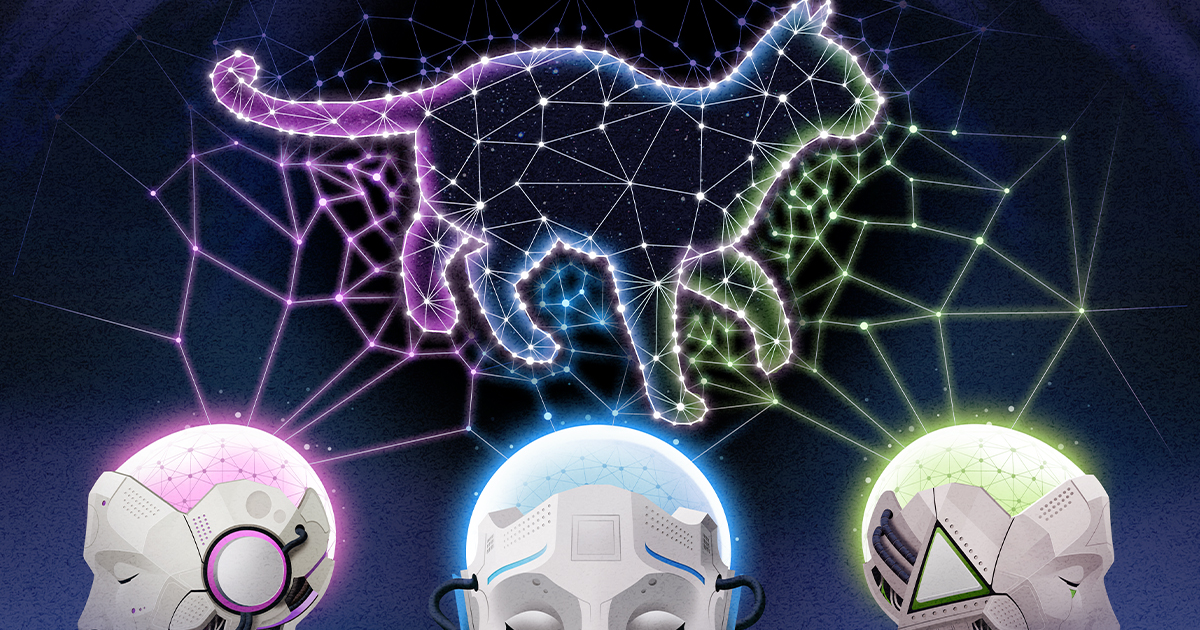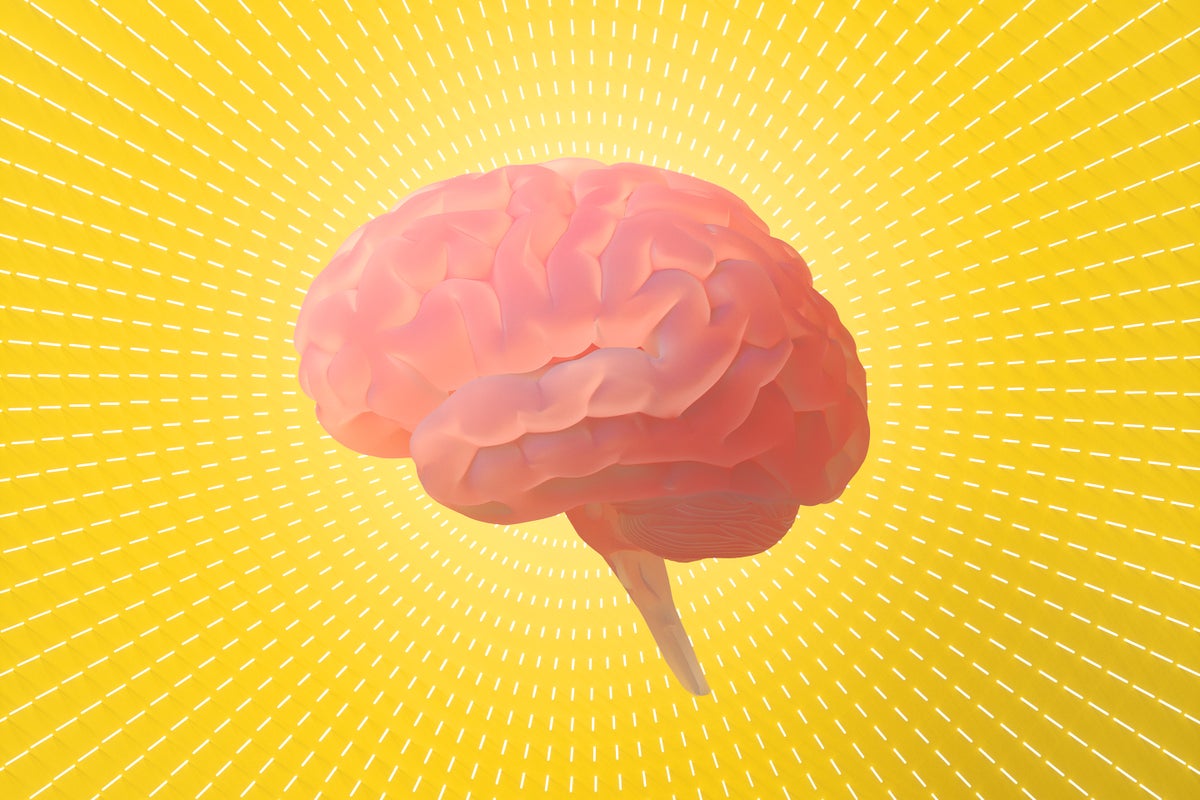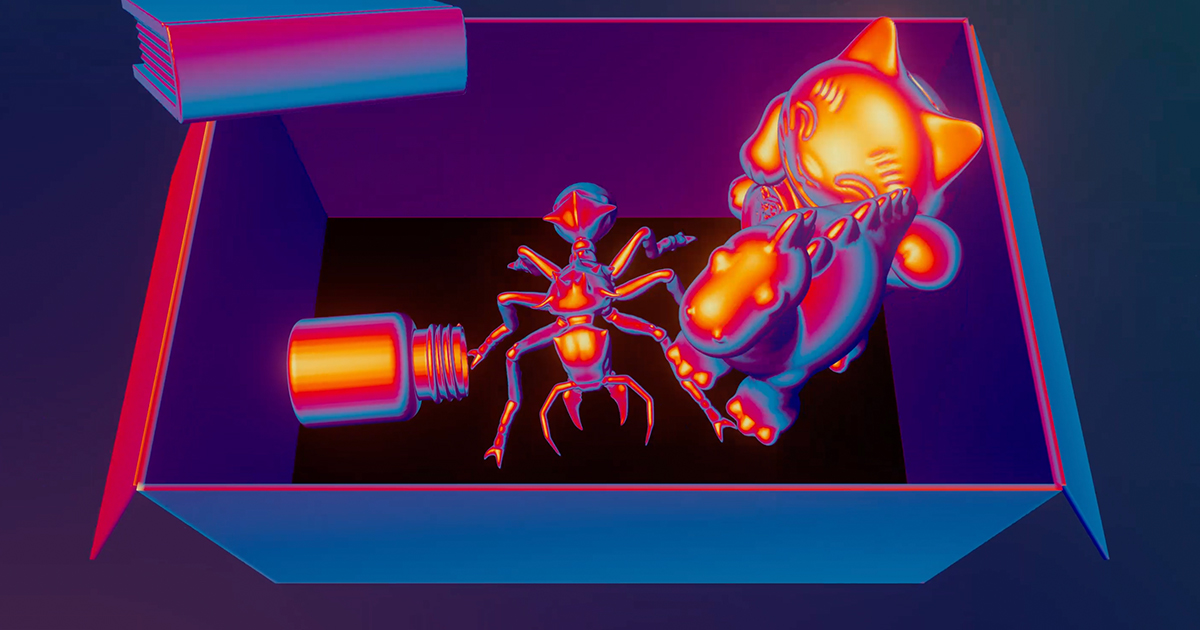Adapted from The Great Shadow: A History of How Sickness Shapes What We Do, Think, Believe, and Buy, by Susan Wise Bauer. Copyright © 2026 by the author and reprinted by permission of St. Martin’s Press. CHAPTER 1: THE PRISM Our bodies are the crossroads where our most private selves meet the world outside, the… Continue reading Excerpt—The Great Shadow, by Susan Wise Bauer
Category: Quantum Stuff
Distinct AI Models Seem To Converge On How They Encode Reality
Read a story about dogs, and you may remember it the next time you see one bounding through a park. That’s only possible because you have a unified concept of “dog” that isn’t tied to words or images alone. Bulldog or border collie, barking or getting its belly rubbed, a dog can be many things… Continue reading Distinct AI Models Seem To Converge On How They Encode Reality
The 10 Most Mind-Blowing Discoveries About the Brain in 2025
December 18, 2025 4 min read Add Us On GoogleAdd SciAm The 10 Most Mind-Blowing Discoveries About the Brain in 2025 From glowing neurons to newborn memories, here are the most fascinating brain discoveries of 2025 By Allison Parshall edited by Andrea Thompson Getty Images/Andriy Onufriyenko The human brain has 86 billion neurons connected by… Continue reading The 10 Most Mind-Blowing Discoveries About the Brain in 2025
In Quantum Mechanics, Nothingness Is the Potential To Be Anything
Suppose you want to empty a box. Really, truly empty it. You remove all its visible contents, pump out any gases, and — applying some science-fiction technology — evacuate any unseeable material such as dark matter. According to quantum mechanics, what’s left inside? It sounds like a trick question. And in quantum mechanics, you know… Continue reading In Quantum Mechanics, Nothingness Is the Potential To Be Anything
Igloos on Mars? How Future Astronauts Could Use Ice to Survive
If humans are ever to land on Mars, they will need somewhere to stay—a protective shell that can shield them from the sun’s harsh rays. One possible answer: great, glassy domes of ice. Mars is rich in ice, both on and under its surface—with more predicted to lie farther below its dusty exterior. If future… Continue reading Igloos on Mars? How Future Astronauts Could Use Ice to Survive
Is the Klein Bottle the Perfect Holiday Gift for Math Fans?
December 18, 2025 3 min read Add Us On GoogleAdd SciAm Two Möbius Strips Combine to Create a Bizarre Object That Only Exists in 4D In geometry, there are surfaces that do without an inside or outside—and some need at least four dimensions to exist By Manon Bischoff edited by Daisy Yuhas LAGUNA DESIGN/SCIENCE PHOTO LIBRARY/Getty Images Visually, the “Klein… Continue reading Is the Klein Bottle the Perfect Holiday Gift for Math Fans?
Satellites Used to Have Months to Avoid Collisions—Now They Have Days
December 18, 2025 3 min read Add Us On GoogleAdd SciAm Satellites Used to Have Months to Avoid Collisions—Now They Have Days In the era of mega constellations, spacecraft typically have less than a week to avoid crashes By Jeremy Hsu edited by Clara Moskowitz The space around Earth has become increasingly cluttered with decades… Continue reading Satellites Used to Have Months to Avoid Collisions—Now They Have Days
Trump Administration Moves to Severely Curtail Access to Gender-Affirming Care for Minors
December 18, 2025 4 min read Add Us On GoogleAdd SciAm Trump Administration Moves to Severely Curtail Access to Gender-Affirming Care for Minors Health officials on Thursday announced a slew of measures that seek to restrict access to gender-affirming health care for young transgender people in the U.S. By Lauren J. Young & Dan Vergano… Continue reading Trump Administration Moves to Severely Curtail Access to Gender-Affirming Care for Minors
Here’s How Much Practice You Need to Become the Best in the World
December 18, 2025 3 min read Add Us On GoogleAdd SciAm Here’s How Much Practice You Need to Become the Best in the World Are you a specialist or a generalist? The answer could reveal something about how well you learn and perfect a skill By Claire Cameron edited by Clara Moskowitz Robert Decelis via… Continue reading Here’s How Much Practice You Need to Become the Best in the World
Inside the Secret Soundscape of Hawaii’s Rarest Seal
Kendra Pierre-Louis: For Scientific American’s Science Quickly, I’m Kendra Pierre-Louis, in for Rachel Feltman. With some estimates placing the number of Hawaiian monk seals left in the wild at just 1,600, the species is one of the world’s most endangered types of seals. Although scientists have studied the creatures’ biology, movements and population changes in… Continue reading Inside the Secret Soundscape of Hawaii’s Rarest Seal









